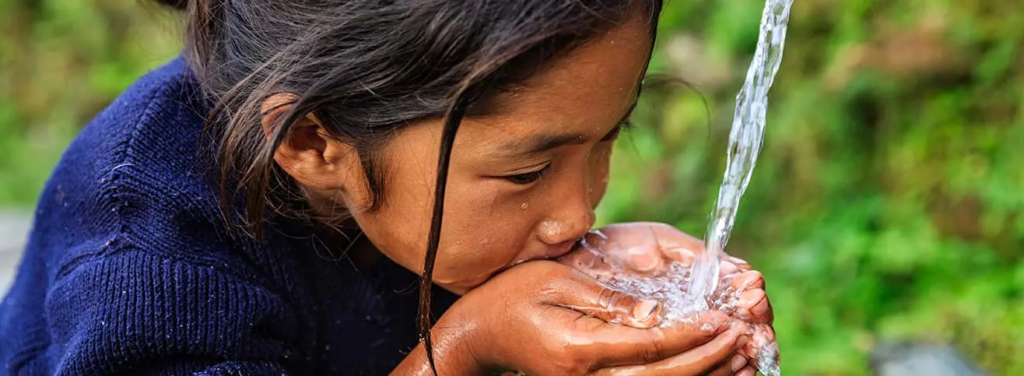
Table of Contents
- Introduction: Water, the Silent Lifeline
- What is World Water Day?
- The Global Water Crisis: A Reality Check
- Why Clean Water is a Basic Human Right
- The Ripple Effect: Clean Water and Its Impact
- India’s Water Story: A Closer Look
- How We Can Make a Difference
- Conclusion: Every Drop Counts
1. Introduction: Water, the Silent Lifeline
We rarely stop to think about the water flowing from our taps. It’s always there—silent, clear, and constant. Yet, for nearly 1 in 4 people around the world, clean water is still a distant dream. Water doesn’t just quench thirst; it sustains life, drives economies, supports agriculture, and nurtures ecosystems. That’s why every year, on March 22, the world pauses to reflect on its most vital resource—on World Water Day.
2. What is World Water Day?
World Water Day was first celebrated in 1993, initiated by the United Nations. The goal? To raise awareness about the global water crisis and inspire action. Each year focuses on a specific theme—like groundwater, water and climate change, or leaving no one behind—highlighting the multifaceted importance of water in our lives and the planet’s health.
3. The Global Water Crisis: A Reality Check
Let’s face the facts:
- 2.2 billion people lack access to safely managed drinking water.
- Water scarcity affects 4 out of every 10 people.
- Climate change is making dry areas drier and floods more severe.
This crisis isn’t just about thirst—it’s about health, education, gender equality, and sustainability. Contaminated water leads to diseases like cholera, diarrhea, and typhoid, while women and children often walk miles just to fetch water, losing precious time and opportunities.
4. Why Clean Water is a Basic Human Right
The United Nations recognizes access to clean water as a human right, not a privilege. Clean water ensures dignity, prevents disease, and builds strong communities. Yet, many are forced to drink from polluted rivers, unprotected wells, or shared, unhygienic sources. This gap between policy and reality is what World Water Day aims to bridge.
5. The Ripple Effect: Clean Water and Its Impact
Access to clean water creates a ripple effect that transforms lives:
- Health: Reduces waterborne illnesses
- Education: Keeps children—especially girls—in school
- Economy: Boosts productivity by reducing time spent collecting water
- Equality: Empowers women and promotes gender balance
- Environment: Protects ecosystems that depend on water
Water isn’t just a resource—it’s a foundation for development and dignity.
6. India’s Water Story: A Closer Look
In India, the water crisis is both urban and rural. From over-extraction of groundwater in Punjab to polluted rivers in urban belts like the Yamuna and Ganga, the challenge is vast. However, there’s hope—initiatives like Jal Jeevan Mission, Swachh Bharat Abhiyan, and local rainwater harvesting efforts are making progress. World Water Day is a timely reminder that grassroots participation is as important as government policy.
7. How We Can Make a Difference
You don’t need to wait for World Water Day to act. Here’s how you can start:
- Fix leaks and install water-efficient fixtures
- Harvest rainwater at home or in your community
- Support NGOs working in the WASH (Water, Sanitation, and Hygiene) sector
- Spread awareness through schools, social media, or local campaigns
- Use water wisely in daily chores—every drop truly matters
8. Conclusion: Every Drop Counts
World Water Day is not just a date on the calendar—it’s a wake-up call. Clean water is not infinite, and the clock is ticking. As individuals, communities, and nations, we must act with urgency and unity. Because when we protect water, we protect life itself.

